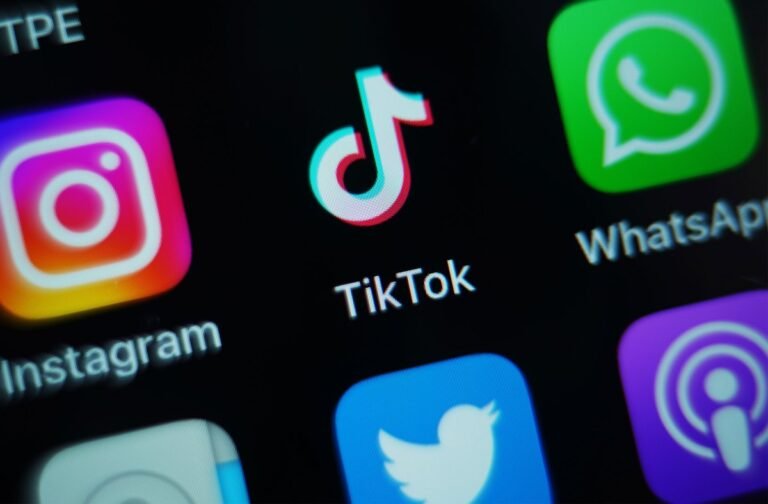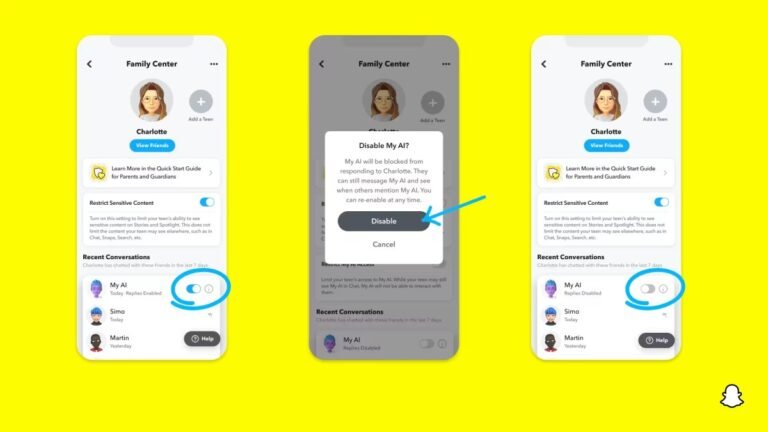
Meta has announced it’s testing new features on Instagram intended to help safeguard young people from unwanted nudity or sextortion scams.
This includes a feature called Nudity Protection in DMs, which automatically blurs images detected as containing nudity.
Nudity screensNudity Protection in DMs aims to protect teen Instagram users from cyberflashing by putting nude images behind a safety screen.
But Meta is taking a further step of not showing the “Message” button on a teen’s profile to potential sextortion accounts, i.e.
For example, in July 2021 Meta switched to defaulting young people’s Instagram accounts to private just ahead of the UK compliance deadline.

Now, it appears Meta is using its Quest VR store to demonstrate how it thinks devices with app stores should approach online age verification.
Since it’s easy to lie about someone’s age when entering only a birthdate, Meta says it’ll require people who accidentally enter a wrong birthdate to verify with an ID or credit card.
Meta has previously told developers that, starting in March 2024, it will require them to identify their app’s intended age group (preteens, teens or adults).
It also announced the launch of its user age group APIs, which officially launched last month.
Meta first added parental supervision tools to its VR headset in 2022.

The company announced on Tuesday that it’s expanding its dedicated STEM feed across Europe, starting in the U.K. and Ireland, after first launching it in the U.S. last year.
The STEM feed will begin to automatically appear alongside the “For You” and “Following” feeds for users under the age of 18.
Users above the age of 18 can enable the STEM feed via the app’s “content preferences” settings.
TikTok says that since launching the feed in the U.S. last year, 33% of users have the STEM feed enabled and a third of teens go to the STEM feed every week.
Content that doesn’t pass both of these checkpoints will not be eligible for the STEM feed.

Case in point, OpenAI today announced a partnership with Common Sense Media, the nonprofit organization that reviews and ranks the suitability of various media and tech for kids, to collaborate on AI guidelines and education materials for parents, educators and young adults.
As a part of the partnership, OpenAI will work with Common Sense Media to curate “family-friendly” GPTs — chatbot apps powered by OpenAI’s GenAI models — in the GPT Store, OpenAI’s GPT marketplace, based on Common Sense’s rating and evaluation standards, OpenAI CEO Sam Altman says.
Common Sense’s framework aims to produce a “nutrition label” for AI-powered apps, according to Common Sense co-founder and CEO James Steyer, toward shedding light on the contexts in which the apps are used and highlight areas of potential opportunity and harm against a set of “common sense” tenets.
An Impact Research poll commissioned by Common Sense Media late last year found that 58% of students aged 12 to 18 have used ChatGPT compared to 30% of parents of school-aged children.
“Together, Common Sense and OpenAI will work to make sure that AI has a positive impact on all teens and families,” Steyer said in an emailed statement.

Meta announced today that it is rolling out new DM restrictions on both Facebook and Instagram for teens that prevent anyone from messaging teens.
What’s more, Meta is also making its parental controls more robust by allowing guardians to allow or deny changes in default privacy settings made by teens.
Previously, when teens changed these settings, guardians got a notification, but they couldn’t take any action on them.
Meta first rolled out parental supervision tools for Instagram in 2022, which gave guardians a sense of their teens’ usage.
Meta didn’t specify what work it is doing to ensure the privacy of teens while executing these features.

Instagram is introducing new nighttime nudges for teen accounts to limit their time on the app, the company announced on Thursday.
The new nighttime nudges will appear when teens have spent more than 10 minutes on Instagram in places like Reels or DMs late at night.
The notice will remind teens that it’s late and encourage them to close the app and go to sleep.
The nighttime nudges will be shown automatically and can’t be turned off, which means teens can’t opt in or out of seeing them.
The new nighttime nudges join Instagram’s other features aimed at reducing teens’ time on its app.

Snapchat is introducing new parental controls that will allow parents to restrict their teens from interacting with the app’s AI chatbot.
The changes will also allow parents to view their teens’ privacy settings, and get easier access to Family Center, which is the app’s dedicated place for parental controls.
Parents can now restrict My AI, Snapchat’s AI-powered chatbot, from responding to chats from their teen.
As for parents who may be unaware about the app’s parental controls, Snapchat is making Family Center easier to find.
Parents can now find Family Center right from their profile, or by heading to their settings.

The Senators argue that giving teens access to Meta’s VR platform before they are ready could harm their development and put them at risk of physical and psychological harm. They…

In the age of digital distraction, it’s no secret that social apps reign supreme when it comes to young people’s time. And while YouTube still dominates in terms of minutes…

In the app market for teens, it’s tough to stay relevant. Snapchat went from being a dominant force in the space to struggling to keep up with more innovative tools.…













